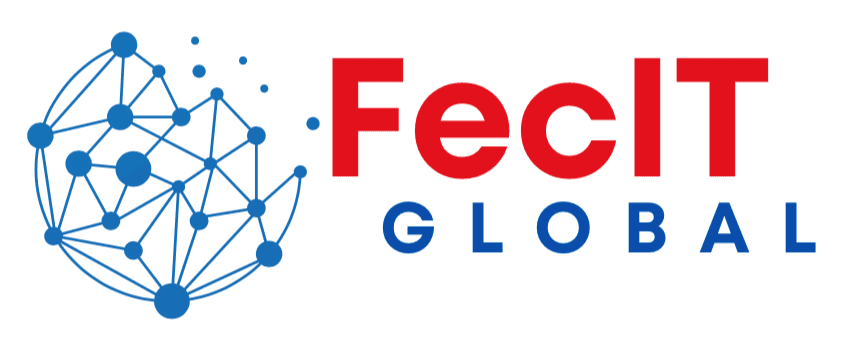In today’s digital age, data is one of the most valuable assets for any organization. With the increasing prevalence of cyber threats, data breaches, and stringent regulatory requirements, protecting sensitive information has become paramount. Data Loss Prevention (DLP) solutions are essential tools that help businesses safeguard their data and ensure compliance. This blog explores the importance of DLP in business and how it can benefit your organization.
What is Data Loss Prevention (DLP)?
Data Loss Prevention refers to a set of tools and processes used to ensure that sensitive data is not lost, misused, or accessed by unauthorized users. DLP solutions monitor, detect, and block the unauthorized transmission of data, whether it’s through email, file transfers, or other means. They help organizations control and protect data in motion, at rest, and in use.
The Importance of DLP in Business
Protecting Sensitive Information
One of the primary reasons for implementing DLP is to protect sensitive information, such as customer data, intellectual property, financial records, and employee details. Unauthorized access or leakage of such information can lead to significant financial losses, legal consequences, and reputational damage.
Ensuring Regulatory Compliance
Many industries are subject to strict data protection regulations, such as GDPR, HIPAA, and PCI-DSS. Non-compliance with these regulations can result in severe penalties and fines. DLP solutions help businesses adhere to regulatory requirements by providing the necessary controls to protect sensitive data and generate audit trails for compliance reporting.
Preventing Data Breaches
Data breaches can occur through various means, including insider threats, cyber-attacks, and accidental data leaks. DLP solutions help prevent data breaches by monitoring and controlling data flows, identifying potential threats, and blocking unauthorized transmissions. This proactive approach minimizes the risk of data breaches and their associated costs.
Enhancing Data Visibility and Control
DLP solutions provide businesses with greater visibility into how data is being used and accessed within the organization. This helps identify potential security risks and allows for better control over data flows. With DLP, businesses can enforce policies to restrict the sharing of sensitive information and ensure that data is only accessible to authorized users.
Supporting Remote Work and BYOD Policies
The rise of remote work and Bring Your Own Device (BYOD) policies has increased the risk of data leakage, as employees access company data from various devices and locations. DLP solutions enable businesses to extend data protection policies to remote workers and personal devices, ensuring that sensitive information remains secure regardless of where or how it is accessed.
Safeguarding Intellectual Property
Intellectual property (IP) is a critical asset for many businesses, especially in industries like technology, pharmaceuticals, and manufacturing. DLP solutions help protect IP by monitoring and controlling its transmission, preventing unauthorized sharing, and ensuring that it remains within the organization’s control.
Mitigating Insider Threats
Insider threats, whether malicious or accidental, pose a significant risk to data security. DLP solutions help mitigate these threats by monitoring user activities, identifying unusual behavior, and blocking attempts to exfiltrate sensitive data. This helps protect against data leaks caused by disgruntled employees, careless mistakes, or compromised accounts.
Benefits of Implementing DLP
Reduced Risk of Data Breaches
By preventing unauthorized access and transmission of sensitive data, DLP solutions significantly reduce the risk of data breaches. This helps protect the organization from financial losses, legal consequences, and reputational damage associated with such incidents.
Improved Compliance
DLP solutions help businesses comply with data protection regulations by providing the necessary controls and generating audit trails. This ensures that the organization meets regulatory requirements and avoids penalties for non-compliance.
Enhanced Data Security
DLP solutions provide comprehensive protection for sensitive data, ensuring that it remains secure at all times. This enhances the overall data security posture of the organization and helps protect against a wide range of threats.
Increased Data Visibility and Control
With DLP solutions, businesses gain greater visibility into how data is being used and accessed. This helps identify potential security risks, enforce data protection policies, and ensure that sensitive information is only accessible to authorized users.
Support for Remote Work and BYOD
DLP solutions enable businesses to extend data protection policies to remote workers and personal devices, ensuring that sensitive information remains secure regardless of where or how it is accessed.
"In today’s digital landscape, protecting sensitive data is more important than ever. Data Loss Prevention (DLP) solutions play a crucial role in helping businesses safeguard their information, ensure compliance, and prevent data breaches. By implementing DLP, organizations can enhance their data security posture, mitigate risks, and protect their valuable assets. "
